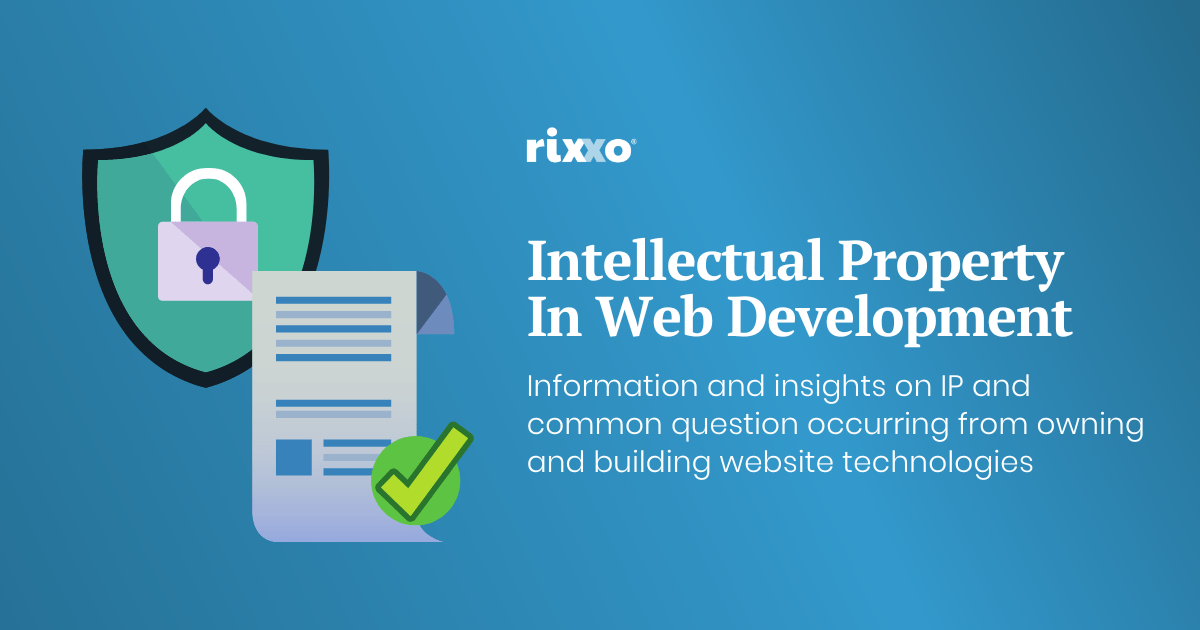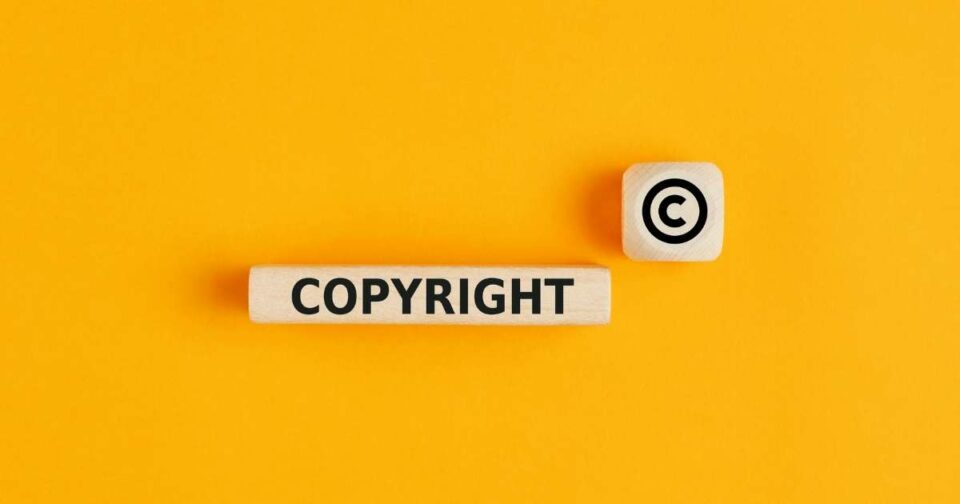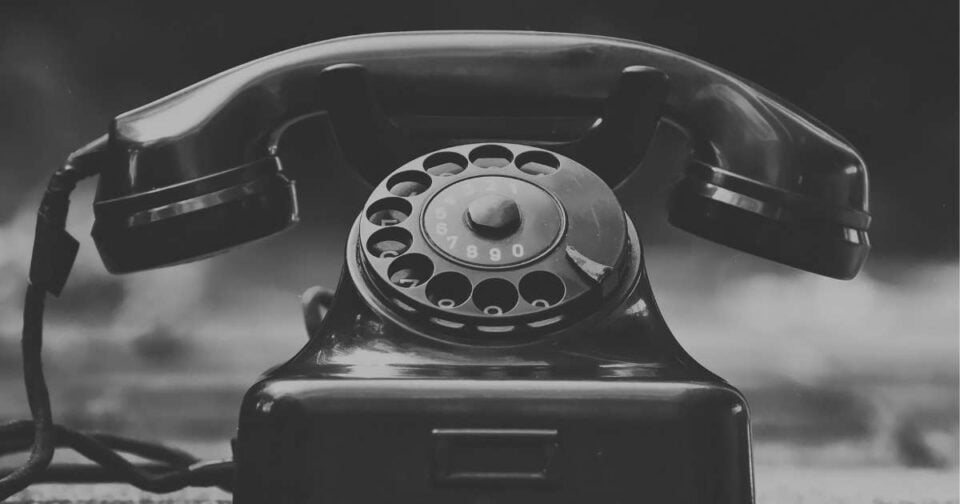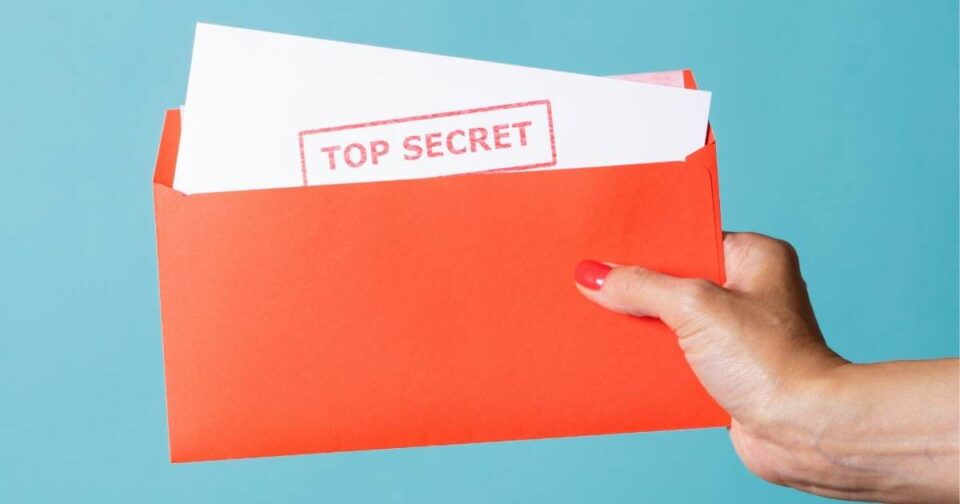Intellectual Property In Web Development

Nothing in this article forms legal advice about intellectual property in website development. The information here has been sourced from government and legal resources and is intended to offer topical insight and attempt to answer common questions from those working with and purchasing from website developers.
It doesn’t even begin to scratch the surface of software licensing or contract laws for that matter. What we hope this article does is demonstrate to our clients now and in the future that we understand and listen to concerns about Intellectual Property, and make efforts to remain on top of the information available and are open and communicable about the matter.
If you have found this blog because you’re having issues with a web development agency holding you to ransom over hosting or a design agency refusing to share files then we’re sorry you are in this position. Feel free to drop us an email and if we are able to, we will try to help.
The types of intellectual property in web development (IP)
Intellectual property refers to the intangible assets of a business, such as patents, trademarks, and copyrights. These assets are often more valuable than traditional assets, such as land or buildings. In today’s economy, businesses that rely heavily on intellectual property protection can be extremely successful.
Without intellectual property rights, companies would not be able to reap the benefits of their hard work and creativity such as claiming R&D tax credits for innovation. These rights allow businesses to earn revenue from their inventions and ideas. Without this important form of legal protection, many businesses would not exist.
Copyrights


There are many different types of intellectual property, but copyright is one of the most important. Currently, in the UK, the law says:
Copyright protects your work and stops others from using it without your permission.
You get copyright protection automatically – you don’t have to apply or pay a fee. There isn’t a register of copyright works in the UK.
You automatically get copyright protection when you create:
- original literary, dramatic, musical and artistic work, including illustration and photography
- original non-literary written work, such as software, web content and databases
- sound and music recordings
- film and television recordings
- broadcasts
- the layout of published editions of written, dramatic and musical works
You can mark your work with the copyright symbol (©), your name and the year of creation. Whether you mark the work or not doesn’t affect the level of protection you have.
What is a copyright?
Copyright protects original works of authorship that are fixed in a tangible medium. This means that copyright covers both published and unpublished works. Importantly, copyright does NOT protect inventions, discoveries, or ideas. Instead, copyright law protects the way they are expressed. This is why trademarks are so important – they protect the words, phrases, symbols, or design elements that distinguish one company’s goods or services from another.
Who owns a copyright?
Ownership of copyrighted works may depend on the circumstances under which the work was created.
– Creator and first owner
– Works created for an employer
– Commissioned works
– Joint authors
– Co-written works
– Works created by students
The rules around copyright will vary depending on where you are in the world and where the work is produced. Under copyright law, the person who creates a work is typically presumed to be the owner of the copyright. However, there are some exceptions to this rule. For example, if a work is created as part of a work-for-hire agreement, or in an employer-employee relationship, then the copyright may belong to the employer. Similarly, contractors (and not the party that employs them) usually retain ownership of the copyrights in the works they create unless there is an agreement in place that assigns those copyrights to the employing party.
Ownership of copyrighted works may depend on the circumstances under which the work was created.
- Creator and first owner
- Works created for an employer
- Commissioned works
- Joint authors
- Co-written works
- Works created by students
The rules around copyright will vary depending on where you are in the world and where the work is produced. Under copyright law, the person who creates a work is typically presumed to be the owner of the copyright. However, there are some exceptions to this rule. For example, if a work is created as part of a work-for-hire agreement, or in an employer-employee relationship, then the copyright may belong to the employer. Similarly, contractors (and not the party that employs them) usually retain ownership of the copyrights in the works they create unless there is an agreement in place that assigns those copyrights to the employing party.
There is some useful information on Copyright on the Government website
Patents


A patent is a title giving the owner the sole right to prevent others from making, using or selling an invention for a period of time. These rights arise on filing a patent application which is granted by a national patent office.
What is a patent?
Patents are a form of intellectual property that give the creators of ideas, inventions, and works the legal right to exclude others from using, making, or selling their creations. In the United States, an inventor or multiple inventors must apply for a patent. Ownership can then be assigned to a corporate entity afterwards. Patent ownership can also be transferred to assignees and successors who then become proprietors of the patent. Patents are a type of property that can be easily sold or transferred. This makes patents liquid assets that can be used to exclude others from exploiting an invention.
Who owns a Patent?
A patent is a grant of a property right to an inventor of a novel, non-obvious, and useful invention by a government body. A patent guarantees a creator the right to exclude others from making, using, offering for sale, selling or importing an idea, creation, design, or invention. A patent does NOT grant the right to make, use, offer for sale, sell or import an idea, creation, design, or invention.
For information on Patents in the UK, there is useful information and guidance on the Government website
Trade Secrets


What is a trade secret?
A trade secret is a piece of information that is not known to the general public and is kept by its owner to give them a competitive advantage. Trade secrets can include anything from a new product formula to a manufacturing process. Typically, trade secrets are protected through the use of non-disclosure agreements (NDAs) or confidentiality agreements.
A trade secret is information that is not publicly known and which provides a competitive advantage. Trade secrets can include formulas, processes, methods, or practices. The holder of a trade secret must take reasonable steps to keep it confidential.
A trade secret:
– is not generally known to the public;
– confers an economic benefit to its holder because the information is not publicly known; and
– where the holder makes reasonable efforts to maintain its secrecy.
For a more in-depth read take a look at The Agreement on Trade-Related Aspects of Intellectual Property Rights (TRIPS)
Default Ownership of IP
Intellectual property ownership can be a complex and confusing topic, but there are some general principles that can help to clarify things. Even without a formal agreement or contract, ownership of certain types of intellectual property may be determined by common law precedents. In most cases, ownership of intellectual property is vested in a single entity – usually the creator – in the form of sole ownership. However, it is also possible for multiple creators to share ownership of intellectual property through joint ownership.
If any third-party software or other work is used on the website, the agency may not have the right to grant assignment or an exclusive licence to the applicable intellectual property rights. Certain components of the application behind the website may be generic and not exclusively developed for you. In these cases, the agency may grant only a non-exclusive licence entitling you to use the intellectual property rights in the operation of the website.
Identifying intellectual property in Web Design & Development
The main reason that IP becomes complex in technology is knowledge and understanding of:
- What IP actually is
- What codes actually is
- What software is
- What and where the intellectual property is and how to identify it
Typically for these reasons, it gets bundled into “IP” and a common project question comes up “Who owns the IP?” This as we know is a difficult question to answer when as a client you believe you a buying “something” from an agency, and as an agency, you believe you a providing a service to a client.
Rixxo and You: Intellectual Property
Who owns the IP of Rixxo work?
In terms of any designs or code, we remain the owner of the IP. This isn’t the same as owning your website. We won’t take any design or content that you provide and use it elsewhere without permission.
What we own are lines of code that we’ve written to provide your solution, and any designs we’ve produced. It is important for us to retain these rights because we’ll probably use small elements of code that we’ve used in the previous project for your project and code from yours for the next. For example, if we’ve already developed a Hubspot Integration and you’d like it to do something else we adapt that code rather than start from fresh.
Can I sell the things Rixxo makes me?
By default no. For example, you can’t make copies of your website or sell part or all of our code to someone else. You cannot buy one website from us and then make 10 copies to sell to other people without paying us. There is no restriction on your ability to sell the original website to someone else, for example when transferring business ownership.
Can I change, use, and adapt the work Rixxo provides?
Yes, we offer a ‘nonexclusive royalty-free annually renewable license” to use the code we provide, something which gives you the freedom to change suppliers, update your website or transfer ownership while maintaining our IP rights. This includes moving the website onto your own hosting and removing our access. It would not change our ownership of the IP.
What if I want to own the IP?
No problem. We’re happy to have these discussions before or during an agreement. There are some things to note.
If you approached us and told us you wanted to sell the product we were making during Foundations, we’d probably already have the right contract in place.
If something has changed, which is common, you may have had the idea to productise something that we built for you to sell to your clients or resellers, and then we can open negotiations. As most of the time our clients are not competing with us we are able to draw up a transfer of Copyright or IP agreement to change the ownership.
You will need to be able to communicate what IP it is you want to own explicitly, we cannot assign ALL IPs. It is too vague and an untenable situation. It would probably be cheaper to make a new agreement and do the work again than unpick what has been done.
